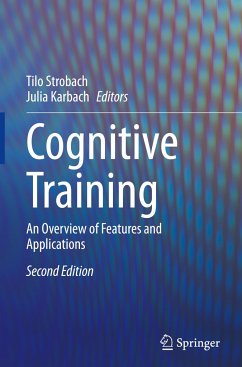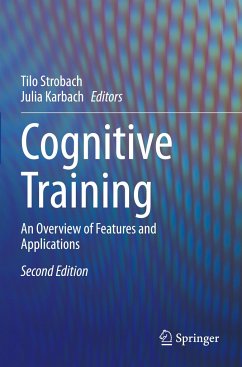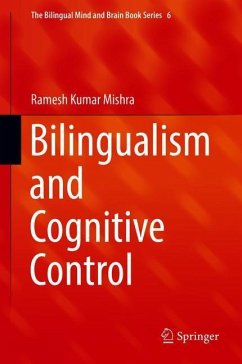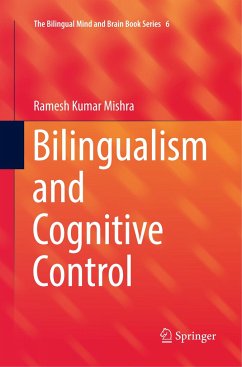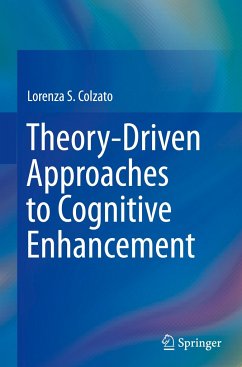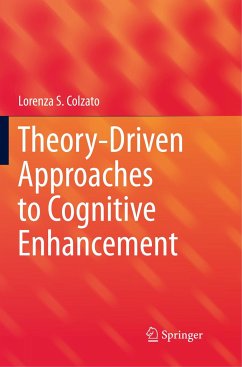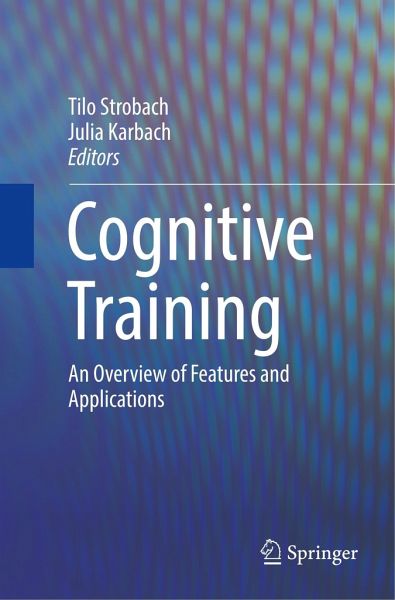
Cognitive Training
An Overview of Features and Applications
Herausgegeben: Strobach, Tilo; Karbach, Julia
Versandkostenfrei!
Versandfertig in 6-10 Tagen
68,99 €
inkl. MwSt.

PAYBACK Punkte
34 °P sammeln!
This book brings together a cutting edge international team of contributors to critically review the current knowledge regarding the effectiveness of training interventions designed to improve cognitive functions in different target populations. There is substantial evidence that cognitive and physical training can improve cognitive performance, but these benefits seem to vary as a function of the type and the intensity of interventions and the way training-induced gains are measured and analyzed. This book further fulfills the need for clarification of the mechanisms underlying cognitive and ...
This book brings together a cutting edge international team of contributors to critically review the current knowledge regarding the effectiveness of training interventions designed to improve cognitive functions in different target populations. There is substantial evidence that cognitive and physical training can improve cognitive performance, but these benefits seem to vary as a function of the type and the intensity of interventions and the way training-induced gains are measured and analyzed. This book further fulfills the need for clarification of the mechanisms underlying cognitive and neural changes occurring after training.
This book offers a comprehensive overview of empirical findings and methodological approaches of cognitive training research in different cognitive domains (memory, executive functions, etc.), types of training (working memory training, video game training, physical training, etc.), age groups (from children to young and older adults), target populations (children with developmental disorders, aging workers, MCI patients etc.), settings (laboratory-based studies, applied studies in clinical and educational settings), and methodological approaches (behavioral studies, neuroscientific studies). Chapters feature theoretical models that describe the mechanisms underlying training-induced cognitive and neural changes.
Cognitive Training: An Overview of Features and Applications will be of interest to researchers, practitioners, students, and professors in the fields of psychology and neuroscience.
This book offers a comprehensive overview of empirical findings and methodological approaches of cognitive training research in different cognitive domains (memory, executive functions, etc.), types of training (working memory training, video game training, physical training, etc.), age groups (from children to young and older adults), target populations (children with developmental disorders, aging workers, MCI patients etc.), settings (laboratory-based studies, applied studies in clinical and educational settings), and methodological approaches (behavioral studies, neuroscientific studies). Chapters feature theoretical models that describe the mechanisms underlying training-induced cognitive and neural changes.
Cognitive Training: An Overview of Features and Applications will be of interest to researchers, practitioners, students, and professors in the fields of psychology and neuroscience.





